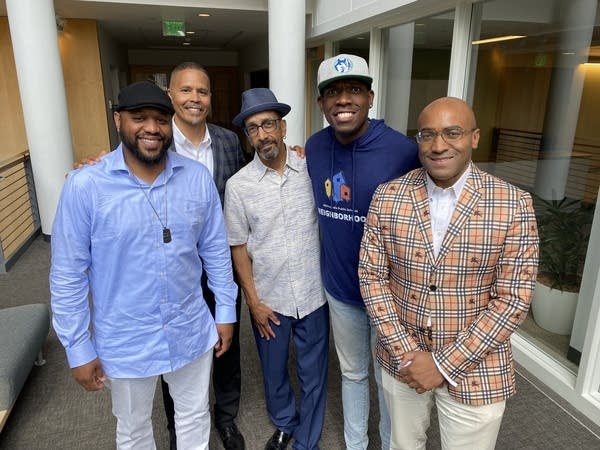The power of Black male educators

(From left) Michael Walker, the director of Black student achievement for Minneapolis Public Schools; Michael Thomas, superintendent Prior Lake-Savage Area Schools; Eric Robinson, retired teacher; Derek Francis, executive director of equity and school climate for Minneapolis Public Schools; Lee Hawkins, American Public Media special correspondent.
MPR News
Go Deeper.
Create an account or log in to save stories.
Like this?
Thanks for liking this story! We have added it to a list of your favorite stories.



